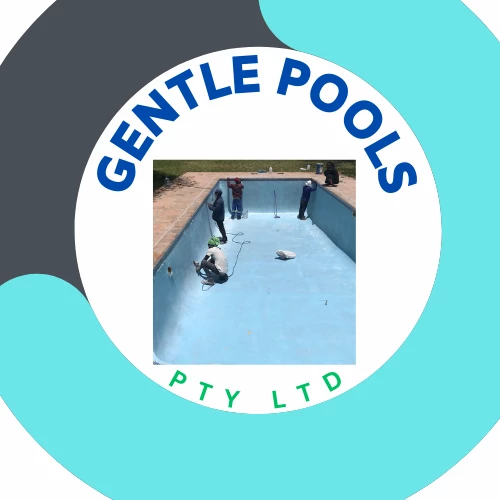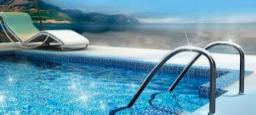Fiberglass vs. Concrete Pools in South Africa:

Fibreglass vs. Concrete Pools in South Africa: Making the Right Choice for Your Backyard Oasis
Let's be honest!
Choosing between a fibreglass or concrete pool for your home in South Africa can be challenging and a major decision. Both pool types have their own set of advantages and limitations, and it's essential to weigh these factors carefully.
Nobody wants a wrong swimming pool in their backyard in South Africa and I am sure you can agree that a poorly designed pool will result in limited usage and discomfort.
Without proper planning, incorrect materials will be selected and this can lead to frequent repairs and maintenance challenges. Moreover, disregarding climate considerations will also cause increased water and energy consumption, impacting both the environment and your finances.
It's crucial to make informed decisions to ensure a suitable and enjoyable swimming pool experience.
In this article, we'll compare fibreglass and concrete pools in detail to help you make an informed decision based on your specific needs.
Advantages of Fibreglass Pools:
Quick Installation:
Fibreglass pools are pre-molded in factories and arrive at your property as a single unit. Installing a fibreglass pool is a relatively quick process, reducing the overall construction time compared to concrete pools.
Smooth Surface:
The gel-coated surface of fibreglass pools is non-porous and smooth, which inhibits algae growth. This smoothness also makes cleaning the pool easier, reducing maintenance efforts and chemical usage.
Low Maintenance:
Fibreglass pools require less maintenance than concrete pools. The non-porous surface prevents the absorption of chemicals and impurities, leading to lower maintenance costs over time.
Energy Efficiency:
Due to their smooth surface and insulated design, fibreglass pools are more energy-efficient than concrete pools. They retain heat better, resulting in reduced heating costs.
Flexibility:
While fiberglass pools come in pre-defined shapes and sizes, they still offer a variety of designs to choose from, catering to different preferences.
Disadvantages of Fibreglass Pools:
Limited Customization:
Unlike concrete pools, fibreglass pools have limited customization options. You must choose from existing designs, which may not perfectly match your specific preferences.
Transportation Constraints:
The size and shape of fibreglass pools are constrained by transportation limitations. If you have limited access to your property, fibreglass pool installation may become challenging.
Ground Movement:
While fibreglass pools are more flexible than concrete pools, they may not be suitable for areas with significant ground movement or soil instability, as they could lead to structural issues.
Advantages of Concrete Pools:
Unmatched Customization:
Concrete pools offer complete design freedom, allowing you to create a pool that perfectly complements your landscape and aligns with your vision. You can choose any shape, size, or depth, and add various features like waterfalls, ledges, and spas.
Durability:
Concrete pools are known for their durability and longevity. When constructed properly and maintained well, a concrete pool can last for several decades.
Resistant to Ground Movement:
Unlike fibreglass pools, concrete pools can withstand significant ground movement, making them suitable for regions prone to soil instability or seismic activity.
Aesthetic Appeal:
The ability to customize the design, along with various finish options like tiles, aggregate, or plaster, allows concrete pools to achieve stunning visual aesthetics.
Disadvantages of Concrete Pools:
Longer Construction Time:
Building a concrete pool is a lengthier process compared to installing a fibreglass pool. The construction period may vary based on the pool's complexity and design.
Higher Upfront Cost:
Concrete pools generally have a higher upfront cost due to the labor-intensive construction process and customization options.
Higher Maintenance:
The porous surface of concrete pools can be susceptible to algae growth, necessitating more frequent cleaning and maintenance.
Environmental Impact:
The construction of concrete pools involves significant use of materials, which can have a higher environmental impact compared to fibreglass pools.
Which Pool is Better?
The answer to this question depends on your specific preferences, budget, and location.
If you value quick installation, low maintenance, and a variety of designs to choose from, a fibreglass pool might be the better option for you.
On the other hand, if you seek complete customization, and long-term durability, and are willing to invest more upfront, a concrete pool could be the perfect fit.
Both fibreglass and concrete pools have their merits, and the right choice ultimately depends on your requirements and vision for your dream pool.
Consulting with a professional pool contractor can help you weigh the advantages and disadvantages based on your unique situation, ensuring that you make the best decision for your property and lifestyle.
Maintenance Considerations:
While both fibreglass and concrete pools have different maintenance requirements, proper care and regular maintenance are essential for the longevity and optimal performance of any pool.
Fiberglass Pool Maintenance:
As mentioned earlier, fibreglass pools have a smooth, non-porous surface that inhibits algae growth and reduces the need for extensive cleaning.
Regularly checking and maintaining the pool's water chemistry, filtration system, and pump is crucial for optimal performance.
Although fibreglass pools require less maintenance overall, it's essential to follow recommended guidelines and avoid using abrasive cleaning tools that could damage the gel-coated surface.
Concrete Pool Maintenance:
Concrete pools have a porous surface, making them more susceptible to algae growth and stains. Regular brushing and cleaning are necessary to prevent algae buildup.
The pool's plaster or tile finish may require periodic resealing or resurfacing to maintain its appearance and integrity.
Monitoring the pool's pH levels, alkalinity, and calcium hardness is essential to prevent surface etching and prolong the pool's lifespan.
Long-Term Durability:
Both fibreglass and concrete pools can offer excellent long-term durability, but each material has its unique considerations.
Fibreglass Pool Durability:
Fibreglass pools are generally more flexible and better equipped to handle ground movement, making them suitable for certain geographic regions.
The gel-coated surface of fibreglass is resilient to chemical damage and can withstand the elements effectively.
Concrete Pool Durability:
Concrete pools are renowned for their longevity when constructed properly. They can endure heavy usage, harsh weather conditions, and ground movement.
However, poor construction practices or lack of maintenance can lead to structural issues over time.
Aesthetic Appeal and Customization:
Fibreglass Pool Aesthetics:
Fibreglass pools offer a smooth and uniform surface, which some homeowners prefer for its modern and sleek appearance.
While customization options are limited compared to concrete pools, fibreglass pools are available in various sizes and shapes, accommodating many design preferences.
Concrete Pool Aesthetics:
Concrete pools are the ultimate canvas for creating a unique and visually stunning pool. The versatility of concrete allows for customizing every aspect of the pool's design, making it an artful centerpiece of your property.
Homeowners can select from a wide range of finishes, including tiles, aggregates, and plaster, to achieve their desired aesthetic.
Environmental Considerations:
Fibreglass Pool Environmental Impact:
Fibreglass pools generally have a lower environmental impact due to their quick installation, lower maintenance needs, and energy-efficient properties.
The materials used in fibreglass pool construction can be recycled, reducing waste.
Concrete Pool Environmental Impact:
The construction of concrete pools involves more materials and labor, resulting in a higher environmental impact.
However, advancements in eco-friendly materials and energy-efficient pool equipment have made it possible to build more sustainable concrete pools.
Conclusion:
Ultimately, the decision between a fibreglass and a concrete pool depends on various factors, including your budget, desired customization, time frame, maintenance capabilities, and geographical location.
Both types of pools have their distinct advantages and disadvantages, catering to different lifestyles and preferences.
If you seek a pool with quicker installation, lower maintenance, and limited customization options, a fibreglass pool may be the better choice. On the other hand, if you value complete design freedom, and long-term durability, and are willing to invest more upfront, a concrete pool could be the ideal option.
Before making your final decision, consulting with experienced pool contractors or professionals can provide valuable insights tailored to your specific needs and help you create the perfect pool that aligns with your vision and lifestyle.
Regardless of your choice, both fibreglass and concrete pools offer an opportunity to create a beautiful and inviting oasis in your South African home, providing years of enjoyment for you and your loved ones


